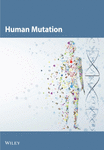Denaturing high-performance liquid chromatography (DHPLC) as a reliable high-throughput prescreening method for aberrant promoter methylation in cancer†
Communicated by Peter Oefner
Abstract
Aberrant promoter hypermethylation of CpG dinucleotides is a frequent and significant mechanism of tumor suppressor gene (TSG) silencing in cancer. As increasing numbers of downregulated putative TSGs are emerging from large-scale expression profiling studies, high-throughput techniques are needed to screen for hypermethylation. DHPLC has been established as a reliable, highly sensitive technique for mutation analysis. In this study, the use of DHPLC as a prescreening method for the identification of CpG methylation was developed by analyzing DNA samples with different, well-characterized methylation patterns of the CDKN2A/p16 promoter. Bisulfite treatment of genomic DNA was followed by PCR-amplification of unmethylated as well as methylated CDKN2A/p16 promoter sequences. PCR products were denatured and renatured, permitting the formation of heteroduplex DNA detectable by DHPLC. Methylation of all CpG-sites results in a single peak (homoduplex) with a shift in retention time, whereas partial methylation can be recognized by additional signals representing diverse heteroduplex structures. After method development, 35 DNA samples from primary bladder and breast carcinomas were analyzed in a blinded fashion, revealing complete or partial methylation of the p16 promoter in eight cases and a heterozygous mutation in one case. In conclusion, DHPLC is a highly sensitive and convenient method for methylation screening. Hum Mutat 23:612–620, 2004. © 2004 Wiley-Liss, Inc.




